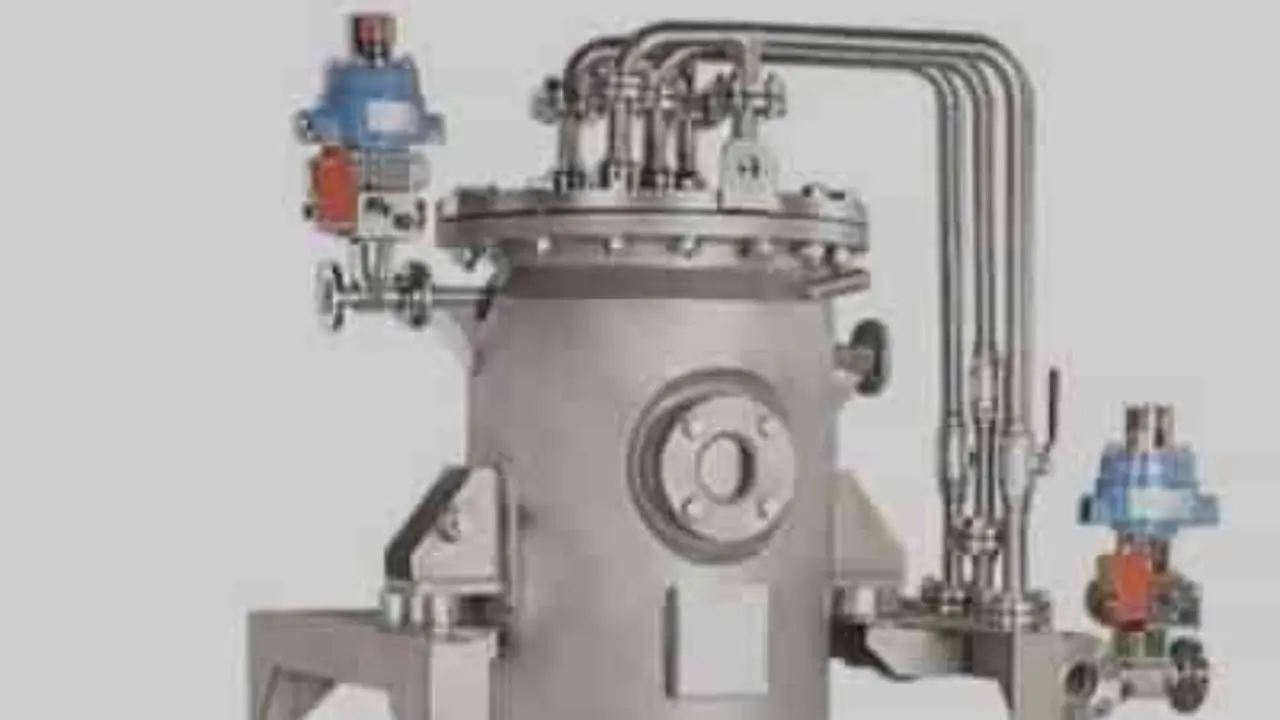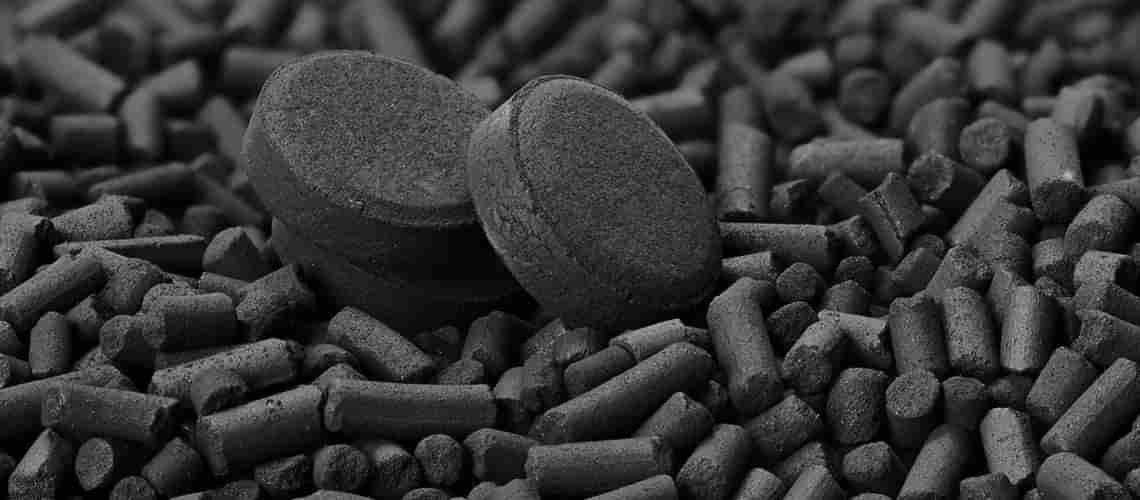- About
- Industries
- Products
- Wastewater Treatment
- Conventional Effluent Treatment: AQUASEP
- Toxic Refractory < 60,000 COD Removal: Catalytic Hydro-oxidation CHD-Ox
- Wet Air Oxidation for TOXIC > 60,000 COD : THERMOX
- Nanobubbles in Water Treatment: NANOPOREX-E
- Chemical-Free Cooling Tower Technology – A Sustainable Solution: ZEPHYR
- MVR for ZLD: Vapozem
- Membranes in wastewater Treatment: PROMEM
- TSS removal and Product recovery using Ceramics: PORESEP
- Heavy Metals and Trace Contaminant removal using Resins: SORBION
- Improving Efficiency of your sand bed filters: NANOMATRIX
- Choosing the Right technology for Wastewater treatment: Wastewater Treatability Studies’
- Reduce/Recover Oil from Wastewater: DISORB
- Produced Water Treatment: PWT
- Non Biofouling Membranes in wastewater Treatment: PROMEM-B
- Advanced Bioaugmentation Culture: BIOPORE
- Cavitation using Ultrasonics: RUSONICS-E
- Oxygen Generator System for Industries: OXYLIFE
- Process Solutions
- Precious Metal catalyst Filtration: CONTUFILT-M
- Activated Carbon Filtration: CONTUFILT-AC
- Raney Nickel Catalyst Filtration: CONTUFILT-RN
- Hot Gas Filtration: CONTUFILT – MH
- Biosolids removal using ceramics: PORESEP
- MVR for ZLD: VAPOZEM
- Ion Exchange-based RESINS: SORBION
- Dehydrating solvents by Zeolite Membranes: SOLVOSEP
- HiGee Continuous Distillation: ROTASEP
- Molecular Separation by Membranes: PROMEM
- Filtration & Separation
- Precious Metal catalyst Filtration: CONTUFILT – M
- Activated Carbon Filtration: CONTUFILT-AC
- Raney Nickel Catalyst Filtration: CONTUFILT-RN
- Hot Gas Filtration: CONTUFILT – MH
- Ceramic Dynamic Membrane Filtration: PORESEP
- MVR for ZLD: Vapozem
- Nano-Bubbles Improve Process Efficiency: NANOPOREX
- Alternate to Continuous Distillation / Rectification: ROTASEP
- Liquid-Liquid Extraction Mixer Settler: SEPARIX
- Ion Exchange-based RESINS: SORBION
- Pervaporation: Dehydrating Solvents and Separating Mixtures: SOLVOSEP
- Cartridges & Filter Bags: FLOWSEP™
- Molecular Separation by Membranes: Recovery and Isolation: PROMEM
- Colour / Organics / VOC Removal: CARBOSORB
- Oxygen Generator System for Industries: OXYLIFE
- RUSONIC – Sonochemistry
- Magnetic Separator Technology: MAG-Filt
- Wastewater Treatment
- Resource
- Contact Us
Industrial filtration system: A complete guide to filtration systems
Top Posts
The recovery of precious metal catalysts is a crucial component of many industrial processes, particularly in sectors like pharmaceuticals, petrochemicals, and fine chemicals. Efficient recovery not only conserves costly metals but also supports sustainable practices by reducing waste and promoting recycling. Diva Envitec’s advanced separation technologies offer a high-efficiency solution for precious metal recovery, utilizing proprietary filter media and innovative design to handle contaminants effectively. With an understanding of factors like particle size distribution (PSD), corrosion potential, and clog-resistant open channel designs, Diva’s solutions stand out in the field of catalyst recovery.
Understanding Industrial Filtration Systems
What is Industrial Filtration?
An industrial filtration system is designed to separate contaminants from air, liquids, and gases used in various industrial processes. These systems range from simple mechanical filters that capture particles to advanced industrial reverse osmosis water filtration systems that remove dissolved solids from water. By filtering unwanted substances, industrial filtration systems enhance operational efficiency, extend equipment life, and ensure end-product quality, proving indispensable for industries like pharmaceuticals, food and beverage, and water treatment.
Key Components of Filtration Systems
The essential components of an industrial filtration system vary based on its type and application. Generally, they include filtration media, support structures, pumps, and housing. Filtration media capture contaminants, while pumps regulate the flow rate. Support structures secure the media, and housing provides protection and containment for the system. Industrial reverse osmosis water filtration systems, for instance, have specialized membranes that remove dissolved salts and impurities, providing purified water necessary for sensitive applications.
Types of Industrial Filtration Systems
Mechanical Filtration
Mechanical filtration uses physical barriers to separate particles from fluids or gases. Examples include bag filters, cartridge filters, and sand filters, each designed to capture particles of varying sizes. Mechanical filters are widely used across industries as a preliminary filtration step to remove coarse particulates before more complex treatments.
Chemical Filtration
Chemical filtration systems utilize chemical agents to neutralize or dissolve contaminants. This type of filtration is ideal for applications that require removal of dissolved gases or unwanted chemical compounds. Chemical filters can be found in industries where water purity is critical, including water treatment facilities and laboratories.
Biological Filtration
Biological filtration uses naturally occurring bacteria to break down organic contaminants in wastewater. This filtration type is essential for industries that generate wastewater with high organic loads, such as food processing. Biological filtration is typically part of a broader wastewater treatment system and aids in achieving environmentally compliant discharge.
Membrane Filtration
Membrane filtration involves using semi-permeable membranes to remove impurities from liquids. This includes microfiltration, ultrafiltration, nanofiltration, and reverse osmosis (RO) systems. Industrial reverse osmosis water filtration systems, for example, are highly effective in producing ultra-pure water by removing dissolved ions and particulates, and are widely used in industries with stringent purity requirements.
Applications of Industrial Filtration Systems
Food and Beverage Industry
In the food and beverage sector, filtration is vital for ensuring product purity and meeting health regulations. Filtration systems remove suspended solids, microorganisms, and contaminants to provide safe and consistent quality. RO systems, especially, are popular in this sector for purifying water used in production processes.
Pharmaceutical Industry
Pharmaceutical filtration demands extremely high standards to ensure the safety and efficacy of drugs. Filtration systems are used to remove particles, microorganisms, and endotoxins from liquids and gases. Membrane filtration and reverse osmosis are critical for achieving the required level of purity in pharmaceutical processes.
Chemical Processing
Filtration systems in chemical processing remove solids, contaminants, and impurities from liquid solutions. Mechanical and chemical filtration techniques are widely used to achieve precise separations and prevent contamination. In high-purity chemical applications, reverse osmosis ensures that contaminants are eliminated, maintaining product integrity.
Water Treatment
Industrial filtration systems are essential for treating water used in industrial processes and for wastewater management. Industrial reverse osmosis water filtration systems, for example, are highly effective in desalinating and purifying water, which is crucial for industries located in water-scarce regions or those aiming to recycle water to minimize environmental impact.
Key Considerations When Choosing a Filtration System
Contaminant Type and Concentration
Understanding the type and concentration of contaminants is fundamental to selecting the appropriate filtration system. Different filtration systems excel at removing specific types of contaminants, such as particulate matter, dissolved salts, or organic materials. For instance, industrial reverse osmosis water filtration systems are best suited for removing dissolved salts and chemicals from water.
Flow Rate and System Capacity
The system’s flow rate and capacity should align with the volume requirements of the application. Filtration systems must handle the required throughput efficiently without compromising on quality. High-flow applications, for example, may require robust systems with larger surface areas to handle larger volumes without clogging.
Operating Conditions
Each filtration system is designed to withstand certain pressure and temperature ranges. When choosing an industrial filtration system, it’s essential to consider the operating conditions of the process. Systems exposed to harsh environments need materials and designs that resist corrosion and degradation.
Maintenance and Operating Costs
Regular maintenance is necessary for optimal filter performance. The frequency of maintenance and the costs associated with it depend on the filtration system type and its components. Some systems, such as industrial reverse osmosis water filtration systems, may have higher upfront costs but offer low long-term maintenance expenses, making them cost-effective over time.
Conclusion
An effective industrial filtration system is essential for maintaining process quality, ensuring compliance, and supporting sustainable operations across various industries. Understanding the specific needs of each application, including contaminant type, flow rate, and operating conditions, helps in selecting the most suitable filtration system. From mechanical and chemical filters to advanced industrial reverse osmosis water filtration systems, the right choice promotes operational efficiency, minimizes maintenance, and supports environmental sustainability.
Learn more about the technology.
Related Posts

Industries
Wastewater Treatment
Separation Sciences
Contact
Sign in for latest updates
Stay informed with the latest updates from Diva Envitec! Sign up for our newsletter to receive exclusive news, insights, and case studies directly to your inbox.

Copyright © 2024 Diva Envitec
Terms of Service
Privacy Policy
Industries
Wastewater Treatment
Separation Sciences
Contact
Sign in for latest updates
Stay informed with the latest updates from Diva Envitec! Sign up for our newsletter to receive exclusive news, insights, and case studies directly to your inbox.


